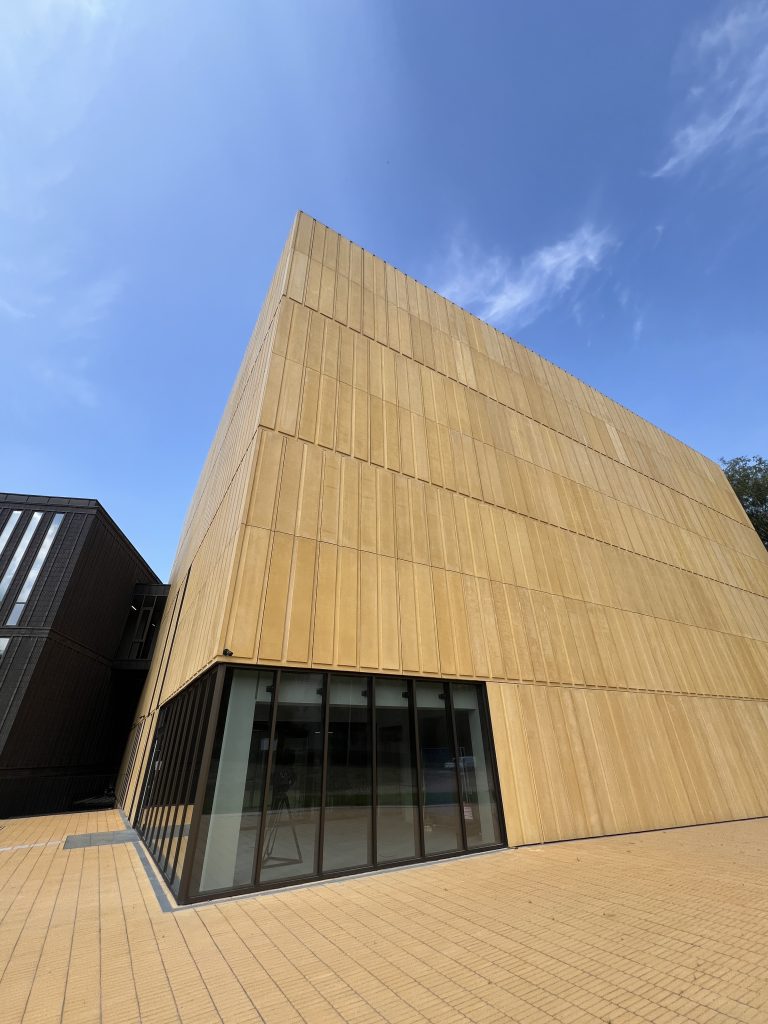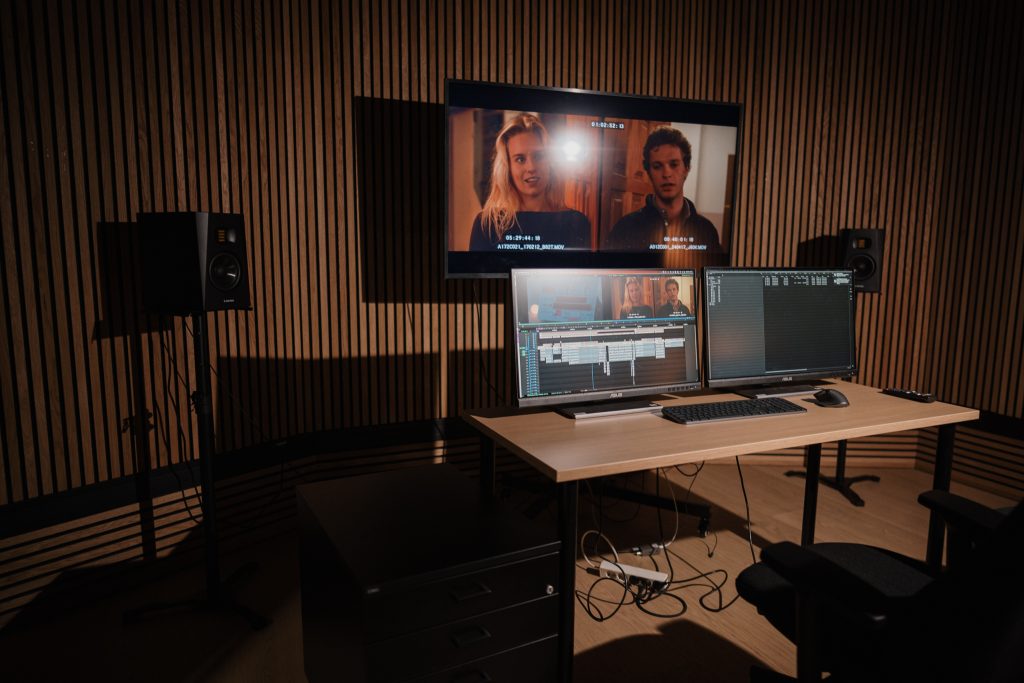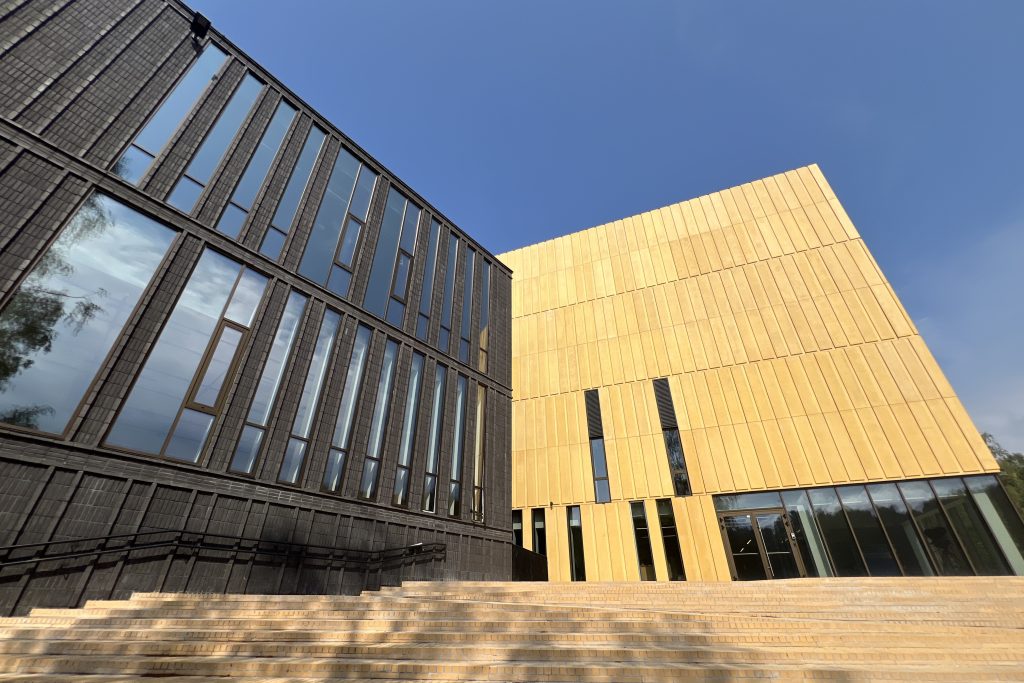New opportunities at LMTA – the Department of Film and TV became the National Film School (KIMO)

This September, after more than three decades of existence, the Department of Film and Television at the Faculty of Theatre and Cinema of the Lithuanian Academy of Music and Theatre (LMTA) officially became the LMTA National Film School (KIMO). This important change marks a new stage in film education in Lithuania and reflects the growth and achievements of the Academy.
LMTA is the only higher education institution in Lithuania that offers film studies programmes. Founded in 1993 by the legendary director Henrikas Šablevičius, the Department of Film and Television has produced more than 1000 graduates who are today active in the Lithuanian film industry. Among them are international award-winning filmmakers such as Laurynas Bareiša, whose film “Pilgrims” was named the best film in the Orizzonti programme of the Venice Film Festival, Marija Kavtaradze, who won an award at the Sundance Film Festival, Saulė Bliuvaitė, who was awarded at the Locarno Film Festival, Vytautas Katkus, who was selected for the competition programme of the Cannes Film Festival, Audrius Stonys, who received the award from the European Academy of Cinema, and others.
The success of LMTA graduates, the high quality of their studies and united community have led to the popularity of film studies. In recent years, the number of specialisations in film studies at the LMTA has grown from four to seven, and the number of students has increased by around 40%. The development of film studies has been reinforced by the LMTA’s membership of the international alliance FilmEU and a new, modern infrastructure – this year marked the start of work by lecturers and students on the new LMTA Study Campus.
The National Film School will continue to train film directors, cinematographers, sound designers, editors, playwrights, producers and researchers in film culture. It will also host a wide range of national and international research on film and media, and initiate projects to promote intercultural dialogue and innovation.
“The creation of the National Film School will help to ensure continuity between different generations of filmmakers, facilitate the transfer of knowledge and ensure the accumulation of filmmaking experience. I also believe that it will become a unifying space for the entire film field and a potential forum for discussions on the further development of Lithuanian cinema,” emphasises Associate Professor Laurynas Bareiša, film director.
The mission of the National Film School is to provide a comprehensive education in film and media, combining theory, practice and innovation. “We strive to foster creativity, experimentation and an individual approach, ensuring that our students are able to create compelling and meaningful stories,” says the head of KIMO, Assoc. Prof. Vytautas Dambrauskas.
According to the Rector of the LMTA, Assoc. Prof. Dr. Judita Žukienė, “The film studies and the film artists who teach there have recently been a source of joy at the Academy in terms of their relevance, creativity and openness to innovation. I have no doubt that the transformation of the Department into the National Film School and the opening of new spaces for filmmaking will stimulate a breakthrough in the studios and will strengthen their competitiveness in the international field of studies”.
KIMO is taught by renowned filmmakers and researchers of different generations, including National Prize laureates and internationally acclaimed artists such as Laurynas Bareiša, Audrius Stonys, Marija Kavtaradze, Giedrė Beinoriūtė, Ramūnas Greičius, Vytis Puronas, Birutė Kapustinskaitė, Titas Laucius and others. “The Department, which has become the National Film School, has acquired its own face and a clear vision, which will help to maintain the link between the filmmakers of the past and the filmmakers of the future,” said Audrius Stonys, a filmmaker, professor, doctor of art.
 |
 |
 |
2024 09 16
